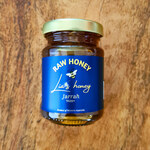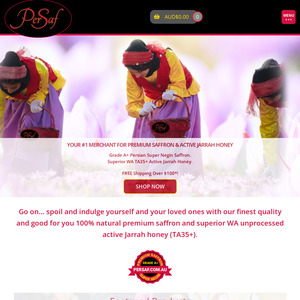Buy 2 get 1 FREE.
200g WA Jarrah Honey TA35+
No coupon required.
Make sure to select the correct drop down item (ie. Bulk Buy & Save: "Buy 2 Get 1 Free $37") when adding to cart.
1x 200g for $18.50
3x 200g for $37 <<- the deal
One of the FAQ's: https://persaf.com.au/faqs/
Jarrah honey gets its antimicrobial prowess from an enzyme that’s added by bees during the production of honey. Jarrah honey is up to 50% more antimicrobial than Manuka honey. Jarrah also contains three times more antioxidants than Manuka that help to support a healthy immune system.
High fructose gives Jarrah honey a lower Glycaemic Index (GI) than most other honeys. Jarrah honey has approximately 52% fructose, 22% glucose and 0.3% sucrose.
Jarrah trees take about 100 years to reach their full height of 40-50m and live for about 450 years. Unlike Manuka trees, Jarrah have a 2-year flowering cycle, therefore Jarrah honey is harvested only once every 2 years, which puts Jarrah honey at a premium since it’s rarer than Manuka.
Moreover, all honey (including Manuka Honey from NZ) imported into Australia must be pasteurised due to our strict bio-security laws. Pasteurisation is a sterilisation process using heat to destroy pathogenic microorganisms. This process may also destroy/compromise the antioxidants, nutrients and other health benefits of the honey. Locally produced raw/unprocessed high activity honey is the better option, plus you’re supporting local businesses and employment.
Our active Jarrah honey is raw, unprocessed and retains all of the qualities and goodness that make the Jarrah honey the best and how nature intended it to be!


3 small jars of honey for $48 delivered is not a bargain…